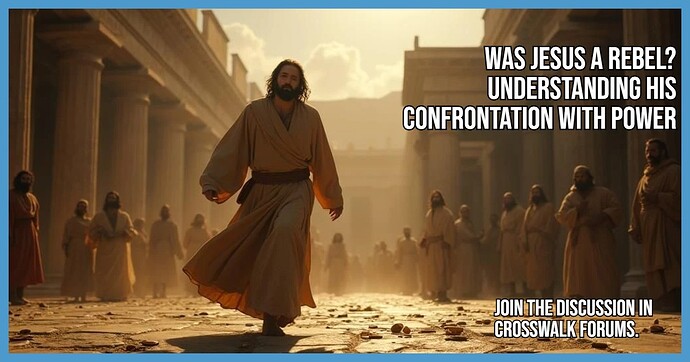Was Jesus a Rebel? Understanding His Confrontation with Power
As Christians reflect on courage, conviction, and Christ’s example, we invite your voice in Crosswalk Forums.
#JesusTheRebel #CourageousFaith #christianforums #crosswalkforums #forums #crosswalk #faithcommunity #faithforums
When we picture Jesus, many imagine a peaceful teacher with kind eyes and soft words. But the Gospels also show a different side—one that flips tables, rebukes leaders, defies corrupt systems, and walks straight into conflict for the sake of truth.
So, was Jesus a rebel?
This Crosswalk article highlights the idea that Jesus didn’t rebel for rebellion’s sake—He challenged power and tradition when they distorted God’s heart. Whether confronting religious hypocrisy or reaching out to the marginalized, Jesus modeled a different kind of rebellion: holy resistance rooted in love.
We’re also introduced to modern “optimisfits”—believers who defy norms not to make noise, but to live more like Christ. From Dietrich Bonhoeffer to Martin Luther King Jr., many who follow Jesus have found themselves on the outside of cultural and religious systems—just like Him.
So we want to hear from you:
Was Jesus a revolutionary in His time?
What does it look like for Christians to challenge broken systems today?
Can a faithful believer be both submissive to God and disruptive to the world?
“Following Jesus will always put us at odds with something.”
Read more about holy rebellion and faith-fueled courage:
